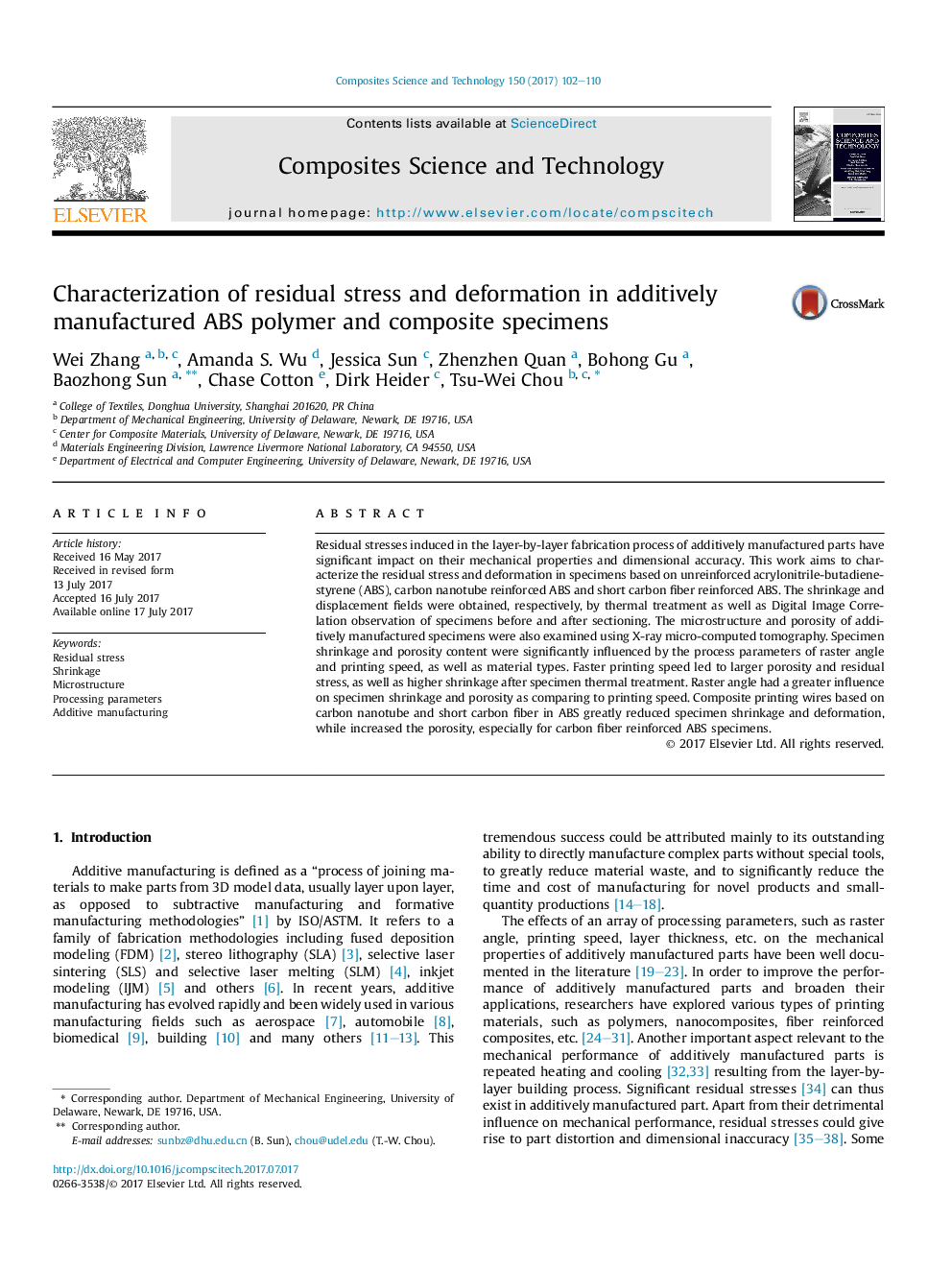| Article ID | Journal | Published Year | Pages | File Type |
|---|---|---|---|---|
| 5022014 | Composites Science and Technology | 2017 | 9 Pages |
Abstract
Residual stresses induced in the layer-by-layer fabrication process of additively manufactured parts have significant impact on their mechanical properties and dimensional accuracy. This work aims to characterize the residual stress and deformation in specimens based on unreinforced acrylonitrile-butadiene-styrene (ABS), carbon nanotube reinforced ABS and short carbon fiber reinforced ABS. The shrinkage and displacement fields were obtained, respectively, by thermal treatment as well as Digital Image Correlation observation of specimens before and after sectioning. The microstructure and porosity of additively manufactured specimens were also examined using X-ray micro-computed tomography. Specimen shrinkage and porosity content were significantly influenced by the process parameters of raster angle and printing speed, as well as material types. Faster printing speed led to larger porosity and residual stress, as well as higher shrinkage after specimen thermal treatment. Raster angle had a greater influence on specimen shrinkage and porosity as comparing to printing speed. Composite printing wires based on carbon nanotube and short carbon fiber in ABS greatly reduced specimen shrinkage and deformation, while increased the porosity, especially for carbon fiber reinforced ABS specimens.
Related Topics
Physical Sciences and Engineering
Engineering
Engineering (General)
Authors
Wei Zhang, Amanda S. Wu, Jessica Sun, Zhenzhen Quan, Bohong Gu, Baozhong Sun, Chase Cotton, Dirk Heider, Tsu-Wei Chou,
